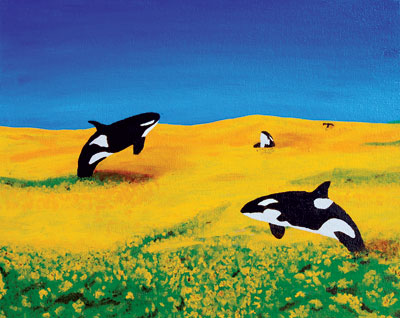All Nonfiction
- Bullying
- Books
- Academic
- Author Interviews
- Celebrity interviews
- College Articles
- College Essays
- Educator of the Year
- Heroes
- Interviews
- Memoir
- Personal Experience
- Sports
- Travel & Culture
All Opinions
- Bullying
- Current Events / Politics
- Discrimination
- Drugs / Alcohol / Smoking
- Entertainment / Celebrities
- Environment
- Love / Relationships
- Movies / Music / TV
- Pop Culture / Trends
- School / College
- Social Issues / Civics
- Spirituality / Religion
- Sports / Hobbies
All Hot Topics
- Bullying
- Community Service
- Environment
- Health
- Letters to the Editor
- Pride & Prejudice
- What Matters
- Back
Summer Guide
- Program Links
- Program Reviews
- Back
College Guide
- College Links
- College Reviews
- College Essays
- College Articles
- Back
Free the Marine Animals
The film “Blackfish” provided a perspective on the life of marine animals that are captive in marine/amusement parks. In response to the film, the California state government passed the Orca Protection Act AB 2305, a bill that would increase the protections of captive orcas. Animals are being taken into captivity and are put in small habitats that are not allowing them to be in their natural environments. Blackfish provided evidence which showed gradual aggression between orcas in confined spaces. Orcas and other marine animals belong in the wild where they can be with their own kind and obtain natural survival skills.
The marine animals that are being brought into parks to show audiences “educational purposes” are being abused. They are being starved and are getting hurt by the other marine animals they are put with. Some orcas are bitten by the others, some are injured from the infrastructure they are held in and they are in unhealthy conditions. Parks are even putting their orca trainers lives at risk. It is dangerous to have a human be in the same water as a wild marine animal especially when they are showing aggression.
All marine animals need to be kept in their natural habitats for the health and hygiene of both the animal and trainer. The Bell Magazine having the animals kept in cages can cause the cages to become “dirty and bacteria will grow and it is likely that the animals will become sick.” It has been proven that all animals who are caged free are happy and have 20% less sickness than caged animals do. The Animal Institute mentioned that marine animals who stay in the wilderness have better benefit then when they are caged up. They are able to travel up to 100 miles while feeding and socializing with their pods.
Parks like SeaWorld put their marine animals through too much that it causes them to die quicker than their natural lifespan. Orcas live from 30 to 50 years in the ocean in their natural habitats while in captivity they live up to 14 years. The article Aquariums and Marine Parks said that “not one has died of old age.” This proves that orcas being put in unnatural environments causes a higher death rate.
On ABC News they put information from the film “Blackfish” about the whale Tilikum, who was the main focus in the film, “broke its trainers jaw, fractured part of her vertebra and dislocated one of her elbows and knee.” Then there was the death of Trainer Alexis Martínez who was killed and was full of “trauma and bite marks...suggesting a more violent incident” as said in Outside Online. There were two other deaths that were caused by the captive orcas. Take Part believes that it could’ve been done due to “the stress of captivity leads the orca to aggression.”
Marine/amusement parks are putting the lives of each orca in danger by exposing them to people. Each park has their own programs to give kids, teens or adults more education on the animals. PETA wrote in their article that these programs are “intrusive, stressful, and even dangerous for the animals, as well as being risky for human participants, too.” This is exposing them to bacterias and can cause them to become frustrated when interacting with humans.
Orcas who are put in an infrastructure that is not natural can also harm the animal. PETA mentioned that there was an incident where a trainer was teaching an orca new tricks when it fell on top the sharp metal edge tank and “sustained an injury on his lower jaw that was so significant that it was described as a “dinner plate-size chunk” or ripped-off tissue.” These tanks they are being put in should be safer for the animals.
Overall we need to make a bigger change. We need the state government to have a stricter protection on the animals and needs to stop all animal captivity. Let’s stop the abuse that the Orcas are being put through. Anyone can help stop the abusive relationships marine parks have with their animals and discontinue “entertainment” shows to have the marine animals in a healthy condition.
Works Consulted
F, Annabelle. “Animals Should Not Be Kept In Cages.” The Bell Magazine. 2018. Accessed 9 December 2018.
Kirby, David. “Did a Wild Orca Really Attack a Diver in New Zealand?” Takepart. 24 February 2014. Accessed October 17 2018.
Mooney, Mark. “Autopsy Reveals Details of SeaWorld Death.” ABC News. 31 March 2010. Accessed 17 October 2018.
N/A. “Wild vs. Captivity.” Animal Welfare Institute. 2018. Accessed 9 December 2018.
PETA. “Aquariums and Marine Parks.” Accessed 15 October 2018.
PETA. “8 Reasons Orcas Don't Belong at SeaWorld.” SeaWorld of Hurt. 2018. Accessed 15 October 2018.
Zimmermann, Tim. “Blood in the Water.” Outside Online. 24 July 2017. Accessed 16 October 2018.

Similar Articles
JOIN THE DISCUSSION
This article has 0 comments.

This this is based on information from the film “Blackfish”